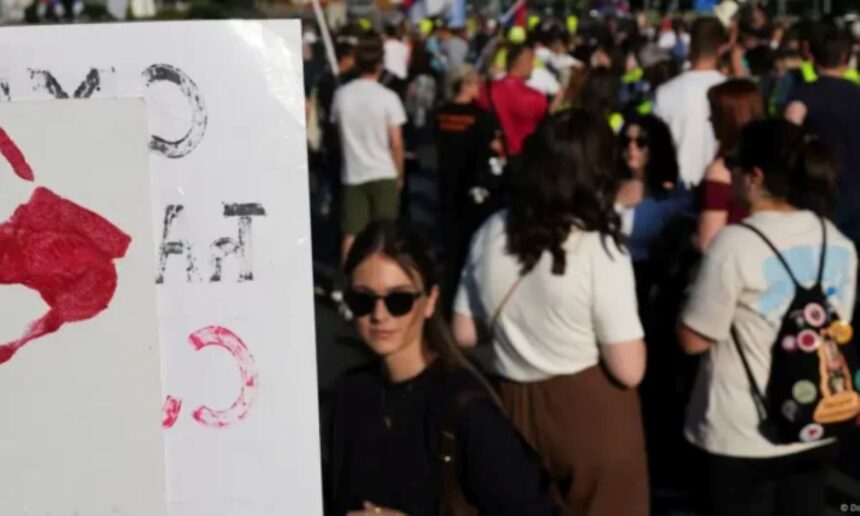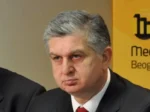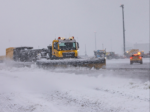Free media and the rule of law unite students and EU demands — but Serbia’s government continues to clamp down.
For journalist Zoran Strika from the news portal 021.rs in Novi Sad, daily work has become increasingly difficult. Since a deadly train station shelter collapse on November 1, 2024, which killed 16 people, waves of protests have continued—and so has the pressure on independent journalists.
Strika describes a deteriorating climate for the press: more work, fewer resources, and increasing threats. For the first time after years of verbal abuse, he was physically attacked while covering a pro-government rally in Belgrade.
“Three men knocked a passerby to the ground for taking photos, beat him up, took his phone, and threw it into the Danube,” Strika told DW, recalling the moment he was filming the SNS party gathering.
Surge in Attacks on Journalists
According to the Independent Journalists’ Association of Serbia (NUNS), there have been 128 reported attacks or pressures on journalists in 2025 so far. In all of 2024, that number stood at 166.
Tamara Filipović Stevanović, NUNS Secretary, explained the alarming rise in physical attacks, often happening in front of the police, who do nothing.
“Journalists are framed as provocateurs simply for doing their job,” she said. “And no one is held accountable—cases go unresolved.”
In addition to physical threats, many journalists are also being surveilled. Amnesty International reported that Serbian authorities have illegally monitored phones of media workers and activists. One of them, journalist Slaviša Milanov from Dimitrovgrad, claims spyware was installed on his device without a court order.
“Are we criminals? Why is this software used on us?” he asked N1 television. “If anything happens to me or anyone around me, I’ll hold the state responsible.”
EU Freezes Millions Over Reform Delays
Media safety is just one of many red flags flagged by local and international watchdogs. Over the past decade, free press has been a core demand of major civic protests across Serbia.
The European Union has made press freedom a requirement for Serbia’s EU membership bid. A new Reform Agenda requires Belgrade to update media laws and properly appoint members to the Electronic Media Regulatory Council (REM) by 2027. Serbia’s failure to meet these obligations led the EU to freeze €111 million in aid.
A new selection process for REM members has been initiated, and draft media laws submitted to working groups. But no concrete results have followed.
Retaliation Against Free Media
NUNS is now calling on the international community to pressure Serbia through direct dialogue, warning that legal reforms alone are not enough.
“Even with new laws, there’s no guarantee they won’t be abused,” Filipović Stevanović warned.
Zoran Strika agrees, describing recent events as a state-led retaliation against media outlets that reported professionally on the Novi Sad tragedy and ongoing protests. Media funding remains another major concern, with fears of future manipulation.
“Reforms must be genuine—not just words on paper,” emphasized EU foreign policy chief Kaja Kallas during her recent visit to Serbia.







